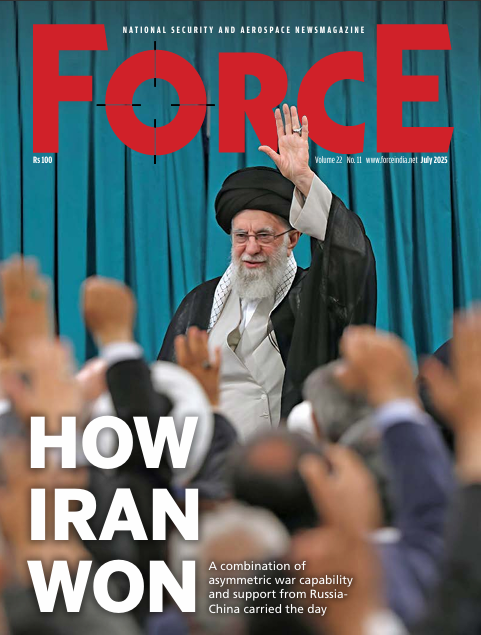Call to Arms
Mohammad Asif Khan
In February 2024, the Adani Group, one of India’s largest conglomerates, inaugurated South Asia’s largest ammunition and missile complex in Kanpur, Uttar Pradesh. This facility, spread over 500 acres, is set to become one of the largest integrated ammunition manufacturing complexes. It will produce high-quality small, medium and large-calibre ammunition for the armed forces, paramilitary forces and police. The facilities were inaugurated by Uttar Pradesh Chief Minister Yogi Adityanath and Army Chief General Manoj Pande.
The Adani Group, led by billionaire Gautam Adani, has been steadily increasing its footprint in India’s defence sector. The conglomerate ventured into the defence sector with a long-term vision spread across the next 50-60 years. “We are going to make big investments in the defence sector in the next 10 years,” Ashish Rajvanshi, the CEO of Adani Defence and Aerospace said at NDTV’s Defence Summit.
“India has been dependent on defence imports for a long time. Prime Minister Narendra Modi has emphasised ‘self-reliant India’. India is currently the fifth-largest economy in the world,” he added. The CEO also attributed the growth of private defence industries to policy initiatives aimed at supporting startups and small to medium enterprises in the sector.
India, the world’s largest arms importer, is actively pursuing a policy of defence indigenisation under the vision of Atmanirbhar Bharat in the defence sector. Currently, some of the very basic ammunition like assault rifles is also imported from foreign nations. New findings from the Stockholm International Peace Research Institute (SIPRI) indicate a 4.7 per cent rise in India's arms imports from 2014-18 to 2019-23.
The Indian Army has a large ammunition inventory comprising 175 variants of different calibre and type. Due to production constraints and large requirements, there exists a demand versus supply gap. The Modi government is making a significant push to increase India’s defence exports. The goal is to reach USD 5 billion by 2025, a substantial increase from about USD 1.5 billion in 2021-22. This initiative is part of a broader strategy to transform India into a global defence manufacturing hub, fulfil domestic needs and export to the international market.
A few defence manufacturing firms in India have started venturing into the export market. For instance, Tata, in collaboration with the American company Sikorsky, has been supplying locally made cabins for the S-92 helicopter and related components to Lockheed Martin in the United States. Additionally, a division of Bharat Forge is shipping 155 milliemetre artillery guns to an undisclosed purchaser, while Adani has exported aerostructures and subsystems for Hermes 900 unmanned aerial vehicles (UAVs).
As a new entrant in the defence sector, Adani Group has invested a whopping USD 350 million in India’s defence sector and through its defence and aerospace division, it is involved in the production of a variety of weapons and defence systems.
Unmanned Aerial Systems
They are India’s first private sector UAV and drone manufacturer exporting to global markets and have set up the first private UAV manufacturing complex at Adani Aerospace Park in Hyderabad to indigenise unmanned aerial platforms. This facility is the only Hermes 900 production facility outside Israel and has started exporting Hermes 900 to international customers. Adani Defence and Aerospace and Elbit have agreed to set up a “Design and Development centr
Subscribe To Force
Fuel Fearless Journalism with Your Yearly Subscription
SUBSCRIBE NOW
We don’t tell you how to do your job…
But we put the environment in which you do your job in perspective, so that when you step out you do so with the complete picture.








